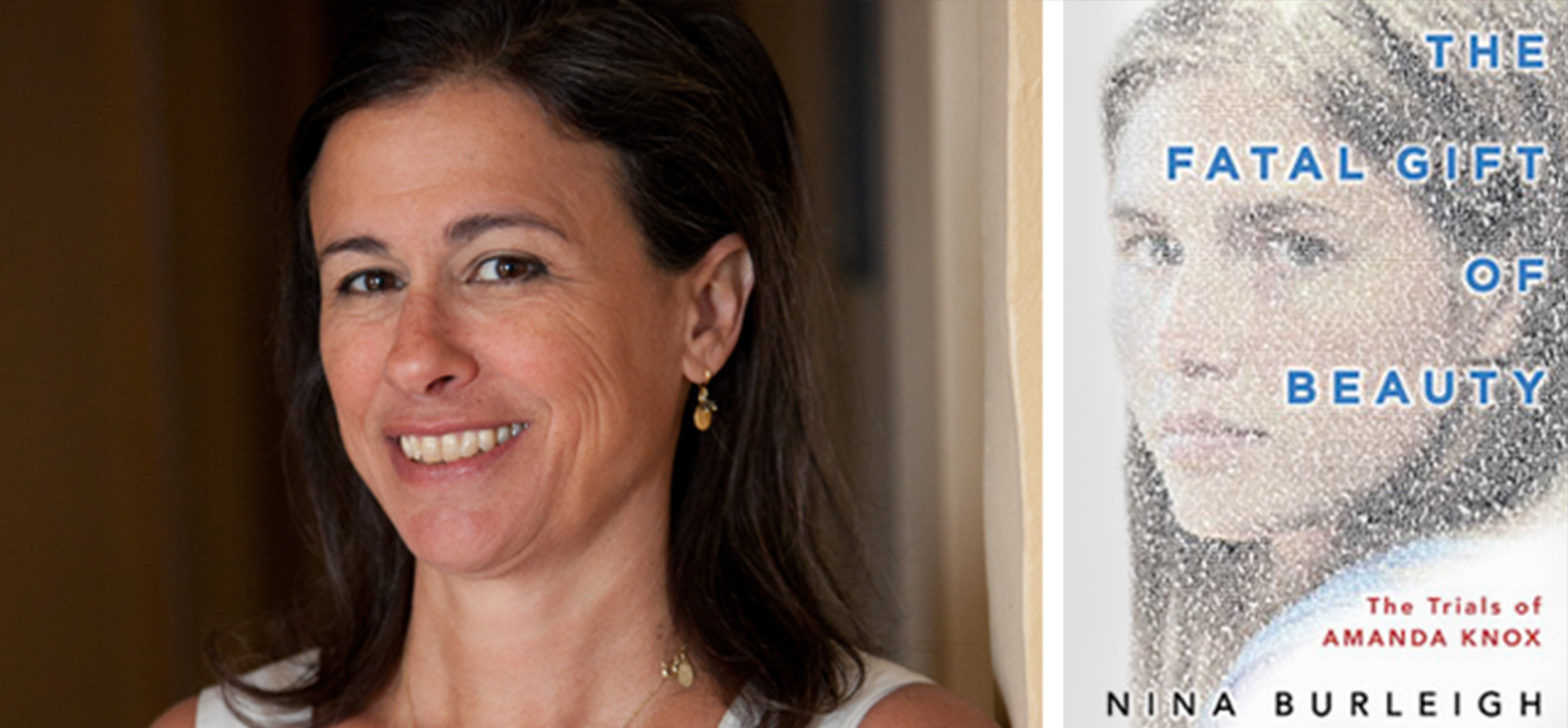
Nina Burleigh spent a year in Italy to write a book on the Amanda Knox trial. (Photo by Erik Freeland)
Nina Burleigh, AM’87, covered Italy’s Amanda Knox case and the global obsession with the beautiful “female monster.”
"Foxy Knoxy,” the Italian and British media call her. Voted the 2009 Woman of the Year in an Italian television-news poll, Amanda Knox, then a 22-year-old University of Washington undergrad on a year abroad in Perugia, was also labeled a “luciferina” and a “dirty-minded she-devil” by a Perugian prosecutor, in his closing statements during her trial for the murder of her British roommate, Meredith Kercher. Convicted in December 2009, Knox was sentenced to 26 years in prison and immediately filed an appeal. Her conviction was overturned October 3.
Journalist Nina Burleigh, AM’87, has pieced together mysteries in several of her five nonfiction books, including her 1998 account of the unsolved murder of one of President John F. Kennedy’s mistresses. For The Fatal Gift of Beauty: The Trials of Amanda Knox (Broadway Books, 2011), Burleigh, who has written for the New Yorker, the Guardian, and Time, moved with her husband and two children to Perugia, an isolated mountain city, to follow the trial. She lived there for about a year, attending the trial from the defense’s opening remarks to the judge’s verdict, reading the case records, and interviewing the players. Although the defense lawyers prevented her from speaking with Knox or the other defendant, her Italian boyfriend, Raffaele Sollecito, Burleigh communicated with them through letters.
After her book’s August publication, Burleigh spoke with the Magazine about why she thinks Knox is not guilty.
Why did the Italian press coverage seem so one-sided?
Italy is only 49th in press freedom in the world, and I came to understand what that meant. The judiciary doesn’t have a public face, so, for example, reporters just get information from favored lawyers, or the other way around: lawyers give favored reporters information. They just print this stuff as fact. There’s no official comment about what’s going on, so no one ever corrects things that lawyers say, that advance their narrative, their point of view.
Did you think Knox was guilty?
When I went over there, I basically thought she was guilty as charged. … After about a month of reviewing documents—the actual case record was available—and beginning to interview various lawyers and the prosecutor himself, I realized that almost everything I had been reading wasn’t true, or it wasn’t actually in the case record.
How did that happen?
It was really a case built on the sense that the police and the prosecutors had that there was just something wrong with this young woman. And they couldn’t put their finger on it. Part of it was the mistranslation, the clash of cultures and the way that young women are expected to behave here and there. She was a soccer player from age 8, and she’s into yoga, and she’s from Seattle, and she has no physical boundaries, in a way. She’s not formal—she’s totally informal—in this country where the bella figura is the be-all and the end-all, the thing that people judge you by. So she’d do things like break into a downward dog whenever she needed to stretch, and she was doing this in the police station. And in Italy, young girls don’t play soccer, that’s for sure, and they don’t exercise in public.
Was it hard to be objective while writing the book?
When I got back to America, I was so disgusted with everyone involved, from the families to the police, everyone. It was winter when we left Italy, and it was so cold, and I wasn’t having very good feelings about Italy at all. ... I was really frustrated with the way the thing had played out, because at the end of the trial, I felt like I was watching a pagan scapegoating spectacle or something, and nobody was as appalled as they should have been. So when I wrote the first draft, it did have an edge to it. My editor said, “You need to think this through,” and I did take it down a notch.
Video
The Crown Books trailer for Nina Burleigh's book The Fatal Gift of Beauty
